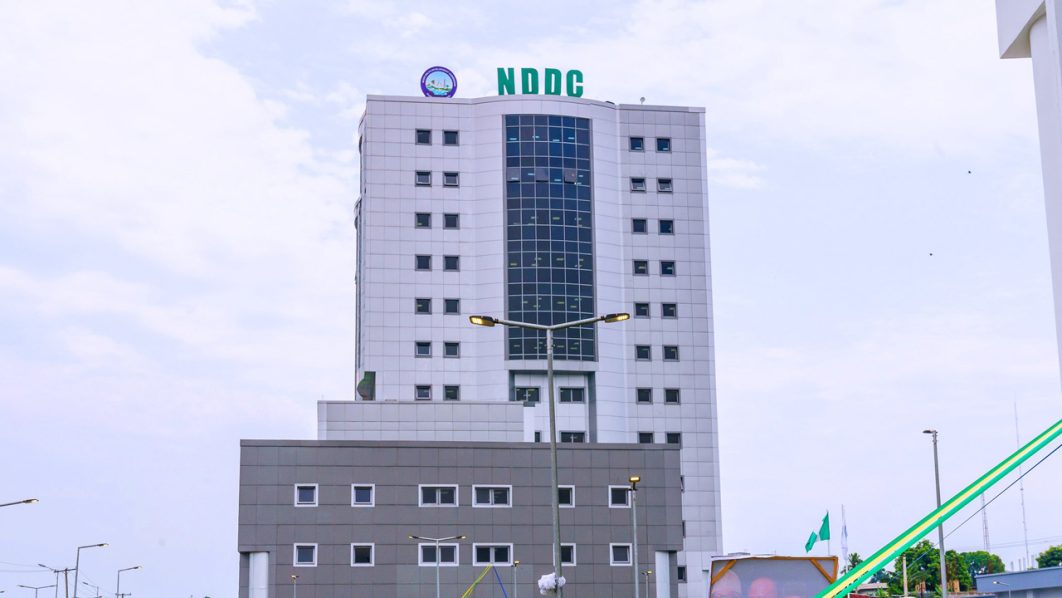
SIR: Members of the Governing Board and Management of the Niger Delta Development Commission (NDDC) have re-stated commitment to promoting projects and programmes that would guarantee food security and sustainable growth in the Niger Delta region.
Chief Monday Igbuya, the Delta State representative at the Commission’s Governing Board, who spoke at the flag-off of a training and empowerment programme for women and youths in livestock farming and agro-processing at Amukpe, in Sapele Local Government Area of Delta State described the training as capable of improving both the socio-economic lives and promoting peace in the region, noting that the decision by the NDDC to prioritise training on livestock was also in line with President Ahmed Bola Tinubu Renewed Hope Agenda of developing capacity.
This is coming few days after the Commission in a similar style inaugurated Livelihood Improvement Family Enterprises – Niger Delta (LIFE-ND) initiative, a scheme that would be funded by NDDC and the International Fund for Agricultural Development (IFAD), with IFAD contributing $60 million (N95.31 billion) and NDDC providing $30 million (N47.65 billion).
According to the Commission’s Managing Director, Mr Samuel Ogbuku, the project will not only address unemployment, reduce youth restiveness, and promote agribusiness in the region but transform the lives of over 38,000 direct beneficiaries over six years in the three NDDC-funded states of Akwa Ibom, Imo, and Rivers.
“We are using this launch to reaffirm our commitment to economically empower our youths and women to build businesses that uplift their future, families, and communities. This project is not just ploughing through the fields of agribusiness but will break new ground and cultivate opportunities for wealth and stability. It will create new opportunities, providing fertile soil for growth in areas that were once dry and barren for the region’s youth and women. Agribusiness seemed out of reach for many in the past, but today we are bridging that gap by opening doors to entrepreneurship, financial independence, and sustainable livelihoods,” he added.
For me, in addition to these programmes and initiatives coming at a time when policy makers across the globe are actively integrating sustainable policy frameworks that both protect the rights and opportunities of coming generations and contributes to compatible approaches, one strategic tailored importance of the Commission’s ongoing efforts is that it is a principally changing narrative and enthroning reorientation.
Take as an illustration, for many years, there existed a veiled agreement that one of the perverse and unintended consequences of the discovery of oil in Nigeria is that governments have almost completely abandoned agriculture in the mad quest for petrol dollars. The nation is a mono-economy, depending on the volatile fortunes of oil. Added to this governance failure is the further deterioration in agricultural fortunes caused by oil pollution. Thereby, oil pollution becomes an indirect violation of the right to life, even as it is a violation of the right to a safe and habitable environment.
In view of the above ecological challenge, many environmental analysts have in the past argued that it will be futile to hope that investment of inputs and skills into the sector will boost food supply in rural communities without first addressing adverse oil operation activities. Environmental regulations, they added, must be enforced in order to aid rural development. To others, the first step is for the government to recognise that destruction of agricultural prospects in rural communities through irresponsible oil operations is an indirect violation of the right to life and the right to a safe environment, and also a negation of the policy of economic diversification. But with the ongoing agricultural programmes by NDDC, it appears the above arguments have ended in the dustbin of history!
Jerome Utomi, a media professional, wrote from Lagos.






